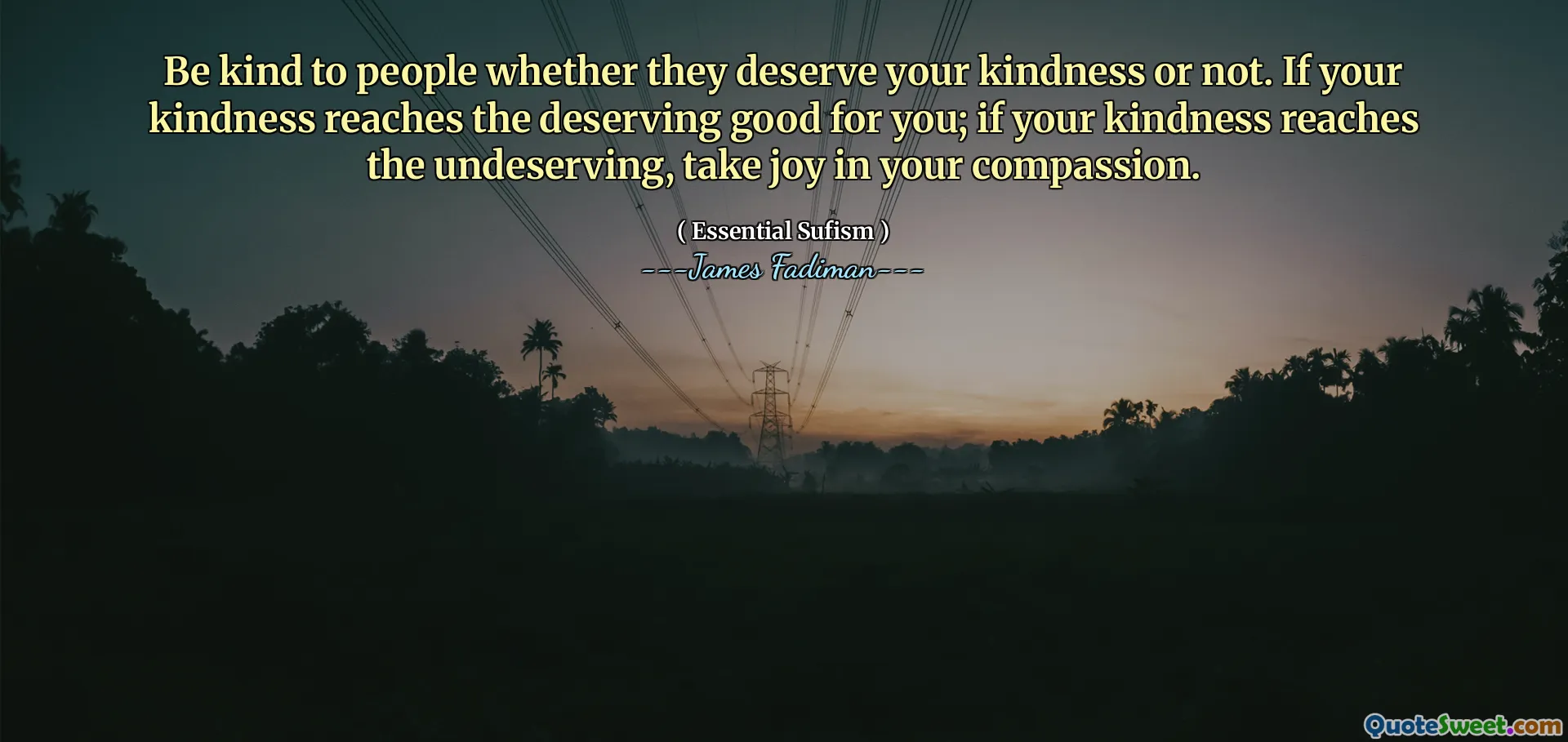
Be kind to people whether they deserve your kindness or not. If your kindness reaches the deserving good for you; if your kindness reaches the undeserving, take joy in your compassion.
The essence of this quote emphasizes the profound value of unconditional kindness and compassion. When we extend kindness without expecting reciprocity or recognition, we align ourselves with a higher moral standard that nurtures our inner peace and moral integrity. From an ethical standpoint, practicing unconditional kindness nurtures empathy and fosters a more compassionate society. It encourages us to transcend judgment and simply respond to others' needs with benevolence. This approach can lead to a ripple effect, inspiring others to act kindly, thus creating an environment where compassion becomes the default response. The quote also highlights the spiritual significance of giving freely, regardless of the recipient’s worthiness. When our acts of kindness are directed towards both the deserving and the undeserving, we engage in a form of selfless service that liberates us from ego and attachment to outcomes. This mindset adheres to the teachings of many spiritual traditions, including Sufism, which is rooted in love and compassion for all beings. Practicing such a form of kindness can sometimes be difficult; it demands patience, resilience, and a genuine desire to see the best in others, even those who may not seem to deserve our compassion at first glance. In doing so, we cultivate inner strength and spiritual growth. Ultimately, the act of taking joy in our compassion—regardless of the response—becomes a source of personal fulfillment and a testament to our moral character. Honoring this practice aligns our actions with deeper spiritual principles of unconditional love and universal respect.


